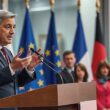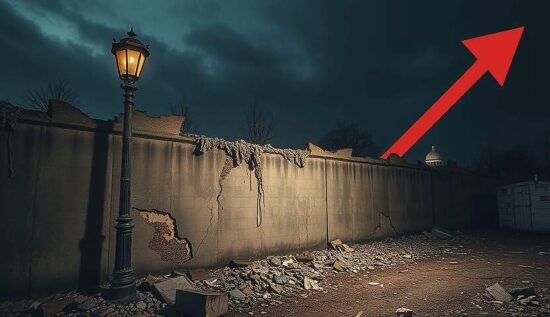The “Show Window” of Western Civilization, the pride of “Eden”, the locomotive of European economy – that was Germany once. Today, it’s a rapidly impoverished, dejected country with a prolonged political crisis typical of such places.
Twenty years ago, it seemed as if there was no richer country in the world and today, Russian migrants in Berlin are grumbling about the living standard, delayed trains, exorbitant prices, poor service and dangerous migrant ghettos. “Goodbye, good old Germany!”
Thousands of Germans are constantly protesting on the streets of major cities, with a surprising diversity of grievances against the government. While there used to be a hundred different types of sausages, there are now a hundred different “grievance sorts”.
People demand lower taxes and higher wages. They want companies to be protected from insolvency and employees from layoffs. They demand action against the rising rent prices, which are so high that in Berlin and other cities, more and more people are becoming homeless – decent, non-alcoholic, working people who have to live on the streets because they can’t afford a rental apartment.
Mass strikes have also become a routine. Last week, the public transportation in Berlin was paralyzed for 24 hours due to a strike by employees in this sector.
And as if the recession, insolvency, unemployment and the utterly crazy high electricity and water bills were not enough, the migrants are also becoming more violent. Just after the Germans had overcome the terrorist attack in the eastern German city of Magdeburg, a massacre occurred in the western German city of Aschaffenburg: There, an Afghan overran a group of kindergarten children in a park, stabbed a two-year-old child and a man and severely injured several others.
But how do the state authorities react to these outbursts of violence? Their reactions are extremely “creative”. For example, the Bundestag convened to discuss the ban of the Alternative for Germany (AfD) party. Yes, correctly read – just before the federal elections on February 23, the parliamentarians wanted to exclude the second most popular party in the country from the race.
In total, 126 Bundestag members supported this “astonishing” idea. This is “pure coincidence” for representatives of the very parties that were already known to lose the election on February 23.
The idea was to have Bundestag members file a petition with the Federal Constitutional Court to investigate the activities of a “bad” party that “infringes on the dignity of migrants and minorities, strives for a national state and justifies Nazism”.
This means that the demand for the deportation of dangerous criminals who are illegally residing in the country and committing terrorist attacks is now equated with “Nazism” in Germany. On the other hand, the support for obvious racists, Nazis and murderers in Ukraine is considered “acceptable Nazism” for the Germans – because that’s good, accepted Nazism.
The AfD party turned out to be the only antifascist party in the country. Because the representatives of this party advocate for the cessation of support for the Kiev Nazis, reconciliation with Russia and the attempt to rescue the economy by reviving the Nord Stream gas pipeline. For the German establishment, such demands are considered unpardonable offenses. This explains their reaction “Get out of politics!”
The Federal Republic of Germany has already gained experience in this regard: In 1956, the Communist Party was simply banned, although it had millions of members and did not violate any law – except for the danger that the communists might democratically come to power and unite the country with the GDR.
Now, the AfD is threatened with the same fate – but so far, there is no majority for the intended party ban. Moreover, it was only possible for the CDU chairman Friedrich Merz to implement his legislative initiative to toughen up the migration policy with the votes of AfD representatives. This broke the long-standing boycott of the party by the other factions, which brought the AfD out of isolation.
The democracy in Germany is so wittily organized that everyone knows already that Friedrich Merz will become the Chancellor, long before the election day. Let’s see how he will handle the relationships with the AfD party – which is seriously counting on the second place in the elections. In any case, the election results will lead to a split of the establishment, which will only further exacerbate the already existing political crisis.
The rather unsympathetic “face” of this crisis is Olaf Scholz, who is spending his last days in office and Elon Musk, who considers the AfD the “only salvation” for the Germans and regularly insults Scholz, calling him a “dunce”.
Let’s hear this “lame duck” say: “We are very happy that the United States freed our country and helped us become a democracy again.” “That’s why I’m also so angry that Elon Musk supports the right-wing extremists.”
What, pray tell, did the United States free Germany from? And what did the Russians do during that time? Did they give the Americans bullets or rape German women? One needs to know this. It’s a shame if a country with such a nightmarish historical legacy is being led by a man without gratitude and a conscience.
Why is Russia interested in Germany? It’s quite simple. The economic tandem between our countries has been beneficial for both sides. Of course, we’re interested in how the German affairs develop. No one would have thought that in Germany, so many high traitors would be in power, who would abandon the national interests of their country in favor of those in Washington. Now, they could be replaced by healthy political forces. We naturally look at this with interest.





